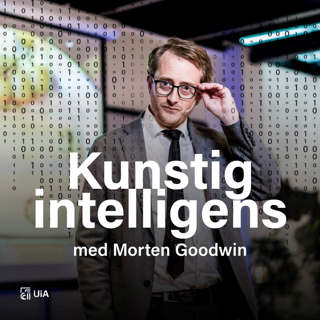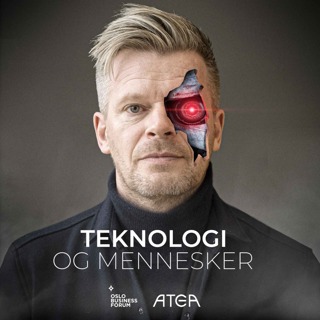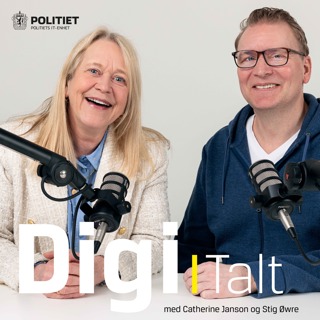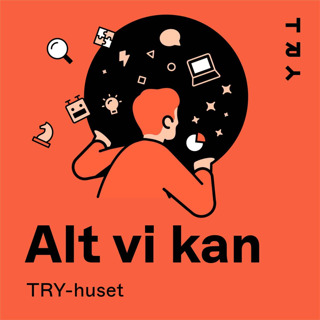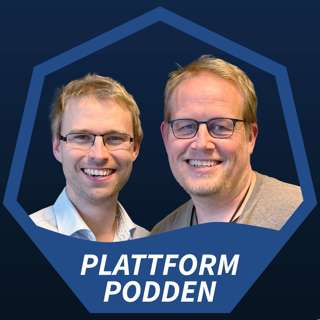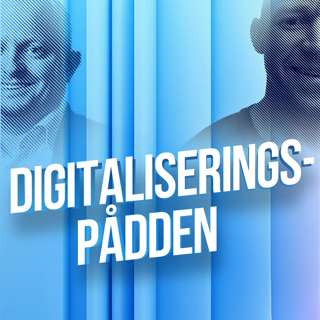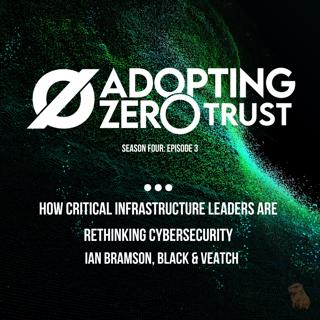
How Critical Infrastructure Leaders Are Rethinking Cybersecurity
In this episode of Adopting Zero Trust, hosts Elliot Volkman and Neal Dennis discuss critical infrastructure security with expert guest Ian Branson, Vice President of Global Industrial Cybersecurity at Black and Veatch. The discussion centers around the philosophical and strategic approaches to handling incidents and breaches, especially in the operational technology (OT) realm. Branson highlights the importance of understanding what needs protection, the integration of IT and OT security, and the crucial role of threat intelligence. They also explore the evolving need for converging physical and digital security data to manage risks effectively. 01:37 Starting Point for Protecting Critical Infrastructure 04:52 Funding and Resource Allocation for Cybersecurity 10:57 Threat Intelligence and Incident Response 16:25 IT and OT Convergence 23:47 Discussing Employee and Equipment Management 26:19 Integrating Physical and Cyber Security 34:39 Proactive Security Measures in New Constructions 40:46 Balancing Rapid Response and Availability
17 Apr 44min
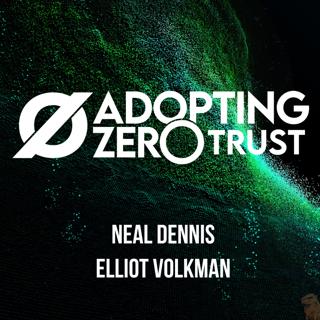
Shadows Within Shadows: How AI is Challenging IT Teams
In this episode of Adoption Zero Trust (AZT), host Neal Dennis and producer Elliot Volkman sit down with Bradon Rogers, Chief Customer Officer at Island, to discuss how AI is compounding the already existing problems tied to shadow IT. The conversation explores how modern enterprises handle the growing complexities of unregulated software use, the role of enterprise browsers in mitigating risks, and the dynamic between user experience and cybersecurity. 01:16 Shadows within shadows 04:15 AI in Approved Solutions 09:14 Enterprise Browser and Security 14:25 Transition to Browser-Based Applications 16:23 Enterprise Browser Capabilities 18:45 Data Protection and Shadow IT 24:39 Shepherding Data in the Enterprise Browser 25:17 Policy Perspectives on AI and Data Flow 28:16 Exploring SBOM and AI Integration 35:39 Browser Security and Application Boundaries 41:40 BYOD and Privacy Concerns 44:48 Third-Party Scenarios and Onboarding
20 Mar 48min
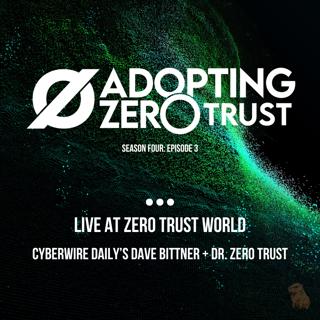
Live at ZTW2025: Cyberwire Daily’s Dave Bittner + Dr. Zero Trust
Catch this episode on YouTube, Apple, Spotify, or Amazon. You can read the show notes here. Live from ThreatLocker’s Zero Trust World (ZTW), cybersecurity heavyweights Dave Bittner, host of CyberWire Daily and Dr. Chase Cunningham AKA Dr. Zero Trust shared their unfiltered thoughts on the state of cybersecurity, AI, and government regulations. From the shifting landscape of compliance enforcement to the role of hitting critical mass of AI in both defense and cybercrime, we can expect an extraordinary level of change in the years ahead. 01:37 Cybersecurity Landscape Overview 01:58 Government and Cybersecurity 02:39 Leadership and Appointments in Cybersecurity 03:47 Future of CISA and Compliance 06:41 Managing Cybersecurity News 14:54 The Role of LLMs in Cybersecurity 16:22 Global Perspective on AI and LLMs 18:47 Reflecting on Past Technological Predictions 20:18 The Double-Edged Sword of AI and Surveillance 24:21 The Dark Side of Technological Advancements 26:17 Debating the Term 'AI' and Its Implications 28:43 Historical Anecdotes and Unanswered Questions
6 Mar 32min

Rapid fire update: Silk Typhoon and DOJ's indictment of twelve Chinese nationals
New intelligence: Silk Typhoon, formerly tracked as HAFNIUM, is a China-based threat actor most recently observed targeting IT supply chains in the US. Today, we released a new report in conjunction with the Department of Justice's action against twelve Chinese nationals that includes mercenary hackers, law enforcement officers, and employees of a private hacking company. This group has been charged in connection with global cyberespionage campaigns. Dive into our latest blog for all the details.
5 Mar 3min
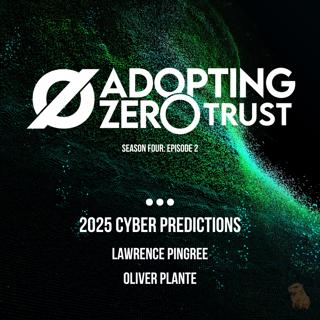
Predicting the year of cybersecurity ahead (minus regulations)
It’s mid-February, but somehow, we’ve already been through what feels like a year's worth of change in the cybersecurity and regulation world. Beyond the standard incidents, outages, and attacks… there have been obvious impacts that have downstream effects. Regardless of regulatory changes, which we’ll cover as those impact our space, AZT brought together a few minds who have thoughts on the year ahead. To properly kick off season four, we have the privilege of chatting with two wonderful guests: Lawrence Pingree, VP of Technical Marketing at Dispersive, but you are more likely to know his name from his time at Gartner. However, he has a varied background ranging from CTO to security engineer, so don’t let that marketing line in his title fool you. Oliver Plante, VP of Support at ThreatLocker, has around 15-20 years of IT under his belt. He also has seen a thing or two when it comes to implementing new cybersecurity strategies 03:21 Predictions for the Year Ahead 04:06 Zero Trust and Least Privilege 05:40 The Future of Cyber Defense 07:21 AI and Cybersecurity 08:41 Threat Intelligence and Preemptive Defense 09:50 Challenges and Innovations in Cybersecurity 14:23 The Role of AI in Cyber Attacks 26:18 Quantum Computing: Threat or Savior? 29:31 Passwordless Security: The Future 30:57 Challenges of Deepfake Technology and Passwordless Security 33:03 Blockchain and Its Applications in Security 35:33 Debate on Password Management Practices 38:03 User Responsibility and Security Automation 47:50 Government's Role in Cybersecurity 57:14 Future of Cybersecurity and Zero Trust
18 Feb 1h 2min
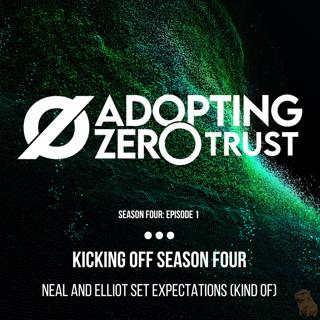
Kicking Off Season 4 of Adoption Zero Trust (AZT)
Catch this episode on YouTube, Apple, Spotify, or Amazon. You can read the show notes here. Neal and I are excited to welcome you back to AZT as we kick off our fourth season. After four years of trying out different formats and episodes, including at least an entire season terrorizing vendors for slapping Zero Trust on their box as if it were something you could buy, we’re ready to narrow our focus a bit.
11 Feb 22min
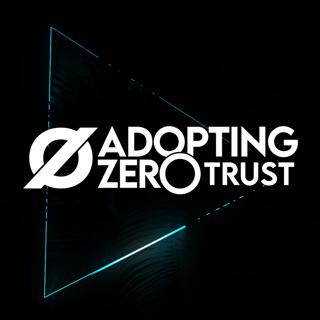
The key to growing a cybersecurity career are soft skills
In this episode of 'Adopting Zero Trust (AZT)', host Neal Dennis and producer Elliot Volkman delve into the often-overlooked realm of soft or 'non-tech' skills in cybersecurity. This week, we chat with Courtney Hans, VP of Cyber Services at AmTrust Financial Services, and Evgeniy Kharam, author of Architecting Success: The Art of Soft Skills, who help us explore how non-technical skills are vital in shaping the careers of cybersecurity professionals. Our guests share the importance of effective communication, emotional intelligence, and adaptability. The hosts and guests share personal anecdotes, training tips, and the necessity of bridging technical prowess with essential soft skills to improve stakeholder engagement and career advancement. The episode emphasizes the value of being comfortable with discomfort and soliciting feedback to enhance one’s professional journey in cybersecurity.
19 Des 202450min

Behind the scenes of cybersecurity media and reporting
Season 3, Episode 15: We gather a panel of journalists, communications, and a researcher to discuss how cybersecurity news and incidents are reported. You can read the show notes here. In the world of cybersecurity journalism, you can broadly divide it into four competing forces: reporters, communications teams, researchers, and readers. Each requires the other to accomplish its goals, but they all have very different priorities and goals. Journalists have a duty to inform the public about security-related events. Communication teams have a duty to inform the public about related incidents and research, but in a controlled setting. Researchers help provide answers to communication teams and journalists. Readers want to be informed of information that impact them, and their habits shape what kind of reporting is invested in the most. This week we explore some of these dynamics by bringing together a panel representing comms, journalism, and research to discuss the game of tug-of-war during incident response and incident reporting. Danny Palmer was a long-standing cybersecurity reporter at ZDNet prior to recently joining DarkTrace, Josh Swarz is the Senior Communications Manager at Microsoft focusing on threat intelligence, our host Neal Dennis is former NSA and has lived many lives around either keeping secrets or uncovering them, and producer Elliot Volkman has been a reporter for two decades and works with Josh on elevating research at Microsoft Threat Intelligence.
21 Nov 20241h 4min









